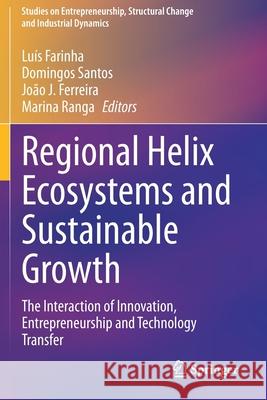Regional Helix Ecosystems and Sustainable Growth: The Interaction of Innovation, Entrepreneurship and Technology Transfer » książka
topmenu
Regional Helix Ecosystems and Sustainable Growth: The Interaction of Innovation, Entrepreneurship and Technology Transfer
ISBN-13: 9783030476991 / Angielski / Miękka / 2021 / 184 str.
Regional Helix Ecosystems and Sustainable Growth: The Interaction of Innovation, Entrepreneurship and Technology Transfer
ISBN-13: 9783030476991 / Angielski / Miękka / 2021 / 184 str.
cena 644,07
(netto: 613,40 VAT: 5%)
Najniższa cena z 30 dni: 616,85
(netto: 613,40 VAT: 5%)
Najniższa cena z 30 dni: 616,85
Termin realizacji zamówienia:
ok. 16-18 dni roboczych.
ok. 16-18 dni roboczych.
Darmowa dostawa!
This book discusses the importance of innovation and entrepreneurial ecosystems in supporting regional competitiveness. It also encourages academics, business professionals and policy-makers to rethink innovation ecosystems as drivers of regional competitiveness, demonstrating the complex interactions between regional economic and social actors, and their impact on regional competitiveness. Further, the book examines the role of entrepreneurship and innovation policies in different regions (e.g. lagging regions, rural regions, etc.), and describes critical success factors in multi-level technologies and innovation policies and strategies.











